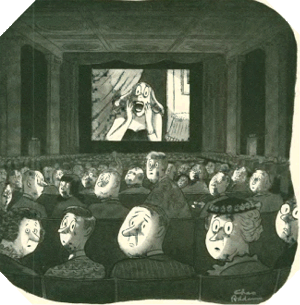 |
| Liszt a few months before his death. Photo by Nadar |
This is
Franz Liszt (1811-86) seemingly larger than life, photographed at 74, warts and all, a few months before he died. In contrast the younger
Liszt pictured below as he appeared in his prime at 47 (1858). In the time between, this remarkable man was transformed from a renowned brilliant pianist, and an important and influential composer, adulated everywhere he went, to a disconsolate person increasingly plagued with feelings of desolation, despair and death occasioned by a period of severe catastrophes in his private life. Music critic
Robert Cummings writes of Liszt:
"he was the only contemporary whose music Richard Wagner (1813-3)
gratefully acknowledged as an influence upon his own. His lasting fame was an alchemy of extraordinary digital ability — the greatest in the history of keyboard playing — an unmatched instinct for showmanship, and one of the most progressive musical imaginations of his time. Hailed by some as a visionary, reviled by others as a symbol of empty Romantic excess, Franz Liszt wrote his name across music history in a truly inimitable manner”.
 |
| ... Liszt in his prime (1858) |
Perhaps Liszt’s “La Vallée d'Obermann” is as good an example as any of the man’s musical legacy, arguably the most profound work in an extraordinary collection of piano works entitled “Années de Pèlerinage” apparently initially inspired by scenes or moods associated with Liszt's travels with his one-time lover, Marie d'Agoult (a popular writer) throughout Switzerland and Italy during the period 1835-39, but in gestation for some 20 years before publication. This piece usually runs close to fifteen minutes and is the longest in the set. A quotation from Byron prefaces the music:
"Could I embody and unbosom now that which is most within me --could I wreak my thoughts upon expression, and thus throw soul, heart, mind, passions, feelings, strong or weak, all that I would have sought, and all I seek, bear, know, feel and yet breathe --into one word; and that one word were Lightning, I would speak; but as it is, I live and die unheard, with a most voiceless thought, sheathing it as a sword”.
 |
| ... the great maestro |
According to recent biographical research,
Liszt in later life resisted hearing his
Vallée d'Obermann. Apparently whenever a student brought the piece to play he declined to hear it ...
"his music seemed to be burdened with memories for him, some too painful to bear".
There exists a superb recording of the work in a remarkable live concert performance (Carnegie Hall, 1966) by a celebrated virtuoso pianist which subtly captures the wonderful essence of the work, its power, deep pathos, and sheer majesty. It is fascinating because due to the exemplary skill and mature muscianship of the artist, it almost seems like a surreal time warp sound-bite from somewhere in the distant past, conceivably conveyed directly and serendipitously from the great master himself:
http://www.youtube.com/watch?v=9p1qK57H_6k&feature=g-all-u




